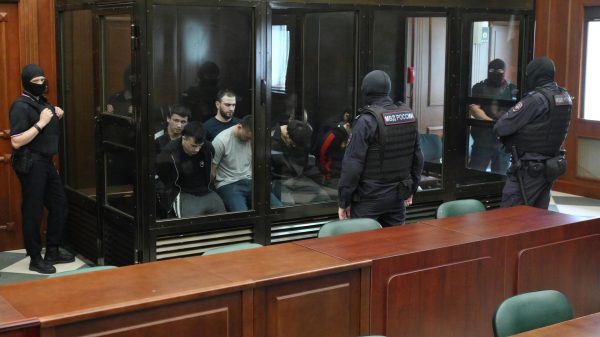Large swathes of the south and east of England are to be put under under the highest level of coronavirus restrictions, as the government rejected calls to allow hospitality businesses to reopen in other parts of the country.
Matt Hancock, the health secretary, announced no change for the “vast majority” of areas already in tier 3, which include most of the north of England and Midlands, London and some of the south-east. “We’ve come so far, we mustn’t blow it now,” he told MPs.
Parts of the south of England and east of England were also moved up to tier 3, including Bedfordshire, Buckinghamshire, Berkshire, Peterborough, the whole of Hertfordshire, Surrey with the exception of Waverley, Hastings and Rother on the Kent border of East Sussex, and Portsmouth, Gosport and Havant in Hampshire.
Only Bristol and north Somerset were moved down to tier 2 after infections fell, while the county of Herefordshire was moved into tier 1, the lowest level of restrictions.
In tier 3, the strictest level of restrictions, hospitality businesses must close except for takeaway services. In tier 2, they can open but customers can only sit inside with other members of their household or bubble. In beer gardens and on outside tables in tier 2, people can mix with up to five other people.
For the past week, political and business leaders in the north and Midlands – large parts of which have been under strict lockdown restrictions since the summer – have been making the case to the government for their areas to be downgraded to tier 2. But those pleas fell on deaf ears amid warnings from health experts that the virus is already out of control again in the run-up Christmas.
Barry Lewis, the Conservative leader of Derbyshire county council, which remains in tier 3 along with Lancashire, Greater Manchester, most of Yorkshire and the north-east, called on the government to provide more financial support and help to their hospitality sectors. “Whilst we recognise that some welcome support is in place, it falls well short of what is required to ensure that sufficient numbers of these businesses can survive this important period of the year and this pandemic,” he said.
Though many political leaders expressed their frustration at the decision, it was welcomed by many local health experts. In Trafford, Greater Manchester, where infection rates have been below the English average for several weeks, the director of public health, Eleanor Roaf, said the decision was “unfortunately the right one”.
She said: “Do I think Greater Manchester is being punished? No. I think, really unfortunately, in Greater Manchester we happen to have a lot of things that put our population at higher risk: more people in lower- paid work, more people doing face-to-face work and more people in factories, perhaps in a noisy or cold environment such as food processing. Unfortunately we already have an unhealthy population too. Our life expectancy and healthy life expectancy is already under the national average and we have a higher proportion of people with underlying health conditions too.”
Roaf said that although infection rates had dropped in Trafford to as low as 25 new cases a day at the end of the second national lockdown, they were now “up in the 40s”.
She added: “This isn’t about punishment. This is about a virus that is very easy to spread and is particularly easy to spread in winter. Fairness and unfairness don’t come into this. I know it’s so frustrating but when you look at our hospital capacity and look at our hospitalisation rates in a good year in January, the hospital system is always under huge pressure. Two years, when there was no Covid, we had all elective surgery cancelled across the NHS in January. That should have been the wake-up call we needed then.”
London and parts of Essex and Hertfordshire entered tier 3 on Wednesday, meaning 34 million people or 61% of England’s population are now living under the toughest level of restrictions.
Announcing the measures in parliament on Thursday, Hancock said: “As we enter the coldest months we must be vigilant and keep this virus under control. Yesterday 25,161 cases were reported and there are 18,038 people in hospital with coronavirus in the UK. We must keep suppressing this virus.
“And this isn’t just a matter for government or for this house, it is a matter for every single person and these are always the most difficult months for people’s health and for the NHS. And especially with the vaccine already here, we must be cautious as we accelerate the vaccine deployment as per the winter plan. We’ve come so far, we mustn’t blow it now.”























































Свежие комментарии